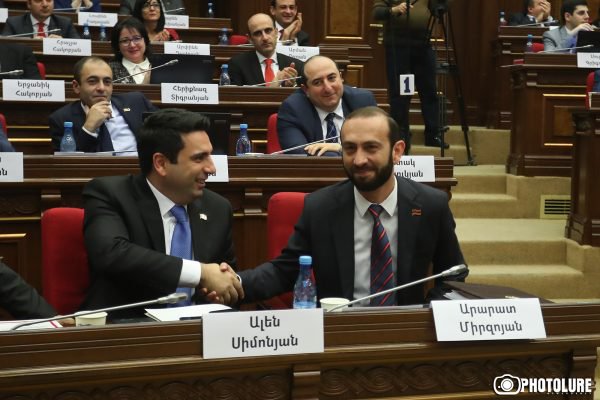The 7th National Assembly held its first session and voted for a Speaker. The Vice Speakers will be elected tomorrow. Many have begun to discuss the personal virtues and vices of the Speaker and Vice Speakers, but I think that that is a secondary problem.
Who was elected Speaker is not important. It is important that the Speaker, and even more so the Vice Speakers, have not been making any decisions for a long time. It is difficult to say that this situation will be changed through constitutional or legal changes. It is also impossible to distribute the responsibility of several parts of the government equally just for Nikol Pashinyan’s political will, no matter how much he wishes to do so. The reasons for this situation are not so much due to laws or desires, as much as it is due to the level of development in society.
Society has not placed its expectations on Ararat Mirzoyan or, let’s say, Vahe Enfiajyan, nor has it placed expectations on any ministers or governors. Instead, its expectations lie solely on Nikol Pashinyan. The majority of our citizens are waiting for Nikol Pashinyan to make miracles happen within a few months.
Therefore, the burden of authority is on Nikol Pashinyan alone. This is not good from the perspective of the state system. It is also placing a huge level of responsibility on the Prime Minister. In that respect, Levon Ter-Petrossian’s situation was more beneficial from 1990-1995 (I am using the time frame of when the government was legitimate as an example, which it also is now), because he had Vazgen Sargsyan, Vano Siradeghyan, Babken Ararktsyan, and Hrant Bagratyan on his side. Vazgen Manukyan, Paruyr Hayrikyan, and the Dashnaks were against him. They all had some ratings- positive or negative, it doesn’t matter. There were serious disagreements between the authorities and between the authorities and opposition, but responsibility of the entire political system was also distributed among them, despite the fact that both expectations and insults were mainly aimed towards the leading figure in the beginning of the ‘90s.
Overcoming having a central figure has to be promoted by the opposition both in parliament and outside, as well as by social workers. The advantage social workers have is not through justifying and praising every move (which a portion of NGOs has been doing lately), but through defending the interests of society, as well as defending society from assaults by the government. And the opposition… perhaps many will not agree with me, but the fact that the Speaker was elected almost completely unanimously is not a good sign.
Aram Abrahamyan

















































